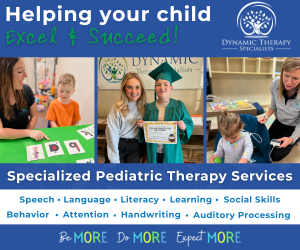At least a few times a month, I get a call from a potential client seeking counseling for their child. It begins something like this:
“Yes, I’d like to schedule a counseling session for my nine-year old.”
“Sure, we can set up family counseling,” I say. “What exactly are the issues you’d like to address?”
“Oh, I was actually just looking for counseling for my daughter…”
Now, while counseling for children is certainly something I do, I can’t help but get a little frustrated inside when I have this conversation. Let me just cut straight to the point(s).
- I cannot do for your child in one hour per week, what you can do for your child in the other 167 hours.
- The problem is not your child. The problem is the family system.
Counseling children needs to include a family component, if for no other reason than the fact that the parent has a much greater influence than I do. And this is a fact you should be happy about. It means you have the power to improve your situation.
You have a much greater influence on your child than you may realize.
So often in this child-centric culture that we live in, parenting styles that are responsive and reactive, not thought out or proactive. Many parents just go day to day, responding to the moods of their child, rather than taking proactive measures to determine what kind of parent they want to be, and what kind of child they want to raise.
But good parenting is proactive.
And good parenting can be learned. If you had great parents, that may come more easily. For some, it takes a little more work. It is harder for parenting to come naturally when you didn’t have good parenting yourself. As a counselor, I absolutely get that and I have a very compassionate attitude toward that.
What I don’t always have a compassionate attitude towards are parents who identify their child as “the problem” in the family.The child may be acting out, depressed, or dealing with anxiety. But mark my words, the problem usually lies in the family system. And until we can restructure the system, there is no amount of talking or play therapy or medication that will fix these issues.
If you really want to help your child, be prepared to meet with a counselor or therapist, and be honest about all aspects of home life. I have had parents as clients whose personal lives were a wreck. BUT when they came with an honest desire to improve the condition of the family for the sake of their child, we have seen remarkable improvements.
I have also seen families where life looks great on the surface. But there were underlying issues that were affecting the kids. In those cases, when parents come to counseling strongly guarding the façade of perfection, only wanting me to “fix” the child, chances are things will not get better and may, in fact, get worse.
So what’s the takeaway here?
If your child is struggling, don’t be afraid to reach out for help, but recognize that what you need is family help. Tell your counselor what is happening in your family, what you as a parent struggle with, and where you need help. Counselors by nature are very compassionate people. I promise you, you will not be judged or looked down upon for your imperfect family.
What frustrates us are parents who refuse to participate or take ownership in their child’s issues. Even if the reason your child is struggling is through no fault of your own (some unexpected trauma or extra-familial abuse, for example), you still need to be a very active part of the solution. You learn how to respond and work with your child during the day to day, the same way that the therapist does in his one hour.
The good news is that if your child is struggling, it is very likely that with some training and some changes, you can see improvements in your family and in your child. The goal of counseling is to have your family complete the therapy and leave feeling improved and most of all, empowered. And chances are, you as the parent will likely find yourself feeling personally happier and healthier as well.

















